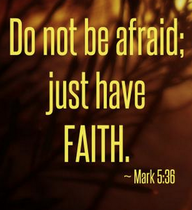
I thought about this as I prayed with this Sunday’s gospel. Maybe you remember the story. Jesus is sitting with his friends and looks up to see a large crowd arriving. Knowing already what he was going to do, he asks his friends a really impractical question: “Where can we buy enough food for them to eat?” The practical friends make their calculations and consider their resources and conclude, maybe with a familiar pit of anxiety in their stomachs, that the situation is impossible. Just when the disciples have pointed out the absurd limitations of their ability to respond, Jesus has them tell the people to recline in preparation for a feast. While thousands look on, Jesus takes the food and prays. John says that Jesus “gave thanks.” He acknowledged that the food he held came from God and belonged to God. Once the child handed it over and Jesus gave thanks over it, it was recognized as God’s food, and it was therefore God’s goodness that the crowd was going to share.
In so many situations, I have let my practical concerns erode my trust and confidence in what God’s power can accomplish. It usually happens when I’m being pragmatic and believe that I need to fix something or solve a problem. When I think the results depend completely on me, my skills and talents seem inadequate and my anxiety increases. When I put this kind of pressure on myself to be the hero, I lose my balance and forget about that presence of God that I felt so surely in less stressful times. I fail to trust that God’s power is always at work.
This doesn’t mean that we can just sit back and wait for God to take care of everything. The miracle in the gospel this week is not explained. We don’t know how it happened. There was suddenly a feast, when there had been so little. It is left as a mystery. What we do know is that God met the needs of the people. God satisfied their hunger, beginning with the generosity of one who apparently had little to offer. How often have I been afraid to act, to make a start at a complicated problem because I felt myself inadequate to the task. These days I have to work so much harder than I did as a child to keep finding that peace and confidence in being that comes from staying in touch with a mysterious relationship with God. But when I do, rather than feeling like it’s all up to me, or that I should wait for some magical solution to appear out of thin air, I can begin to do what I can do, trusting that God is concerned about meeting human needs, and that God can work wonders with what little we have, if we are willing to offer it. With God, inadequacy can be transformed into abundance.
~Fr. Thom
Take your next step: Take some time to recall a specific time in your life when you felt peaceful and confident. Be as specific as you can about the details, and try to remember the feeling. Thank God for that time. Think about a challenge or a stressful situation you are facing. Pray that you can trust in God’s power to multiply the results when you make a start by offering what you can.





 RSS Feed
RSS Feed
 Like us on Facebook
Like us on Facebook Follow us on Twitter
Follow us on Twitter